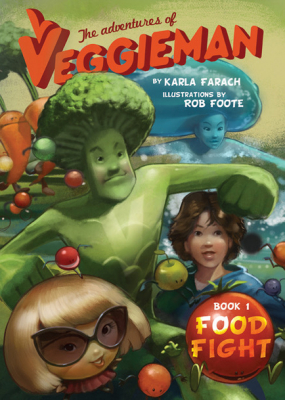
More likely than not, your child has complained of a “tummy ache”. It may be from gas, constipation, diarrhea, nausea, pain and cramping, vomiting, food sensitivities, poor appetite, or other troubling symptoms. As a parent it’s helpful to understand potential causes of stomachaches and effective solutions to help your child feel better sooner than later.
Five Common Causes of Stomachaches in Children
-
Gut problems
such as constipation, diarrhea, irritable bowel syndrome, and indigestion. There are a wide variety of causes of these symptoms, therefore our list below is not exhaustive but focuses on some of the most common reasons for stomachaches.
- Constipation can be caused by poor nutrition, dehydration, and not eating enough fiber. Chronic constipation that doesn’t resolve may be related to other medical conditions such as low thyroid function or celiac disease and should be evaluated further by a medical professional.
- Poor nutrition includes processed junk food such as fast food, pizza, donuts, sugary drinks, cereals, etc. Prepackaged foods that have preservatives and artificial ingredients are lacking essential nutrients and instead are packed full of unhealthy fats and sugars, and lead to health problems like weight gain, increased appetite, poor concentration, headaches and migraines, disrupted sleep and fatigue.
- Dehydration can contribute to constipation. Your child should drink at least half his/her body weight in fluid ounces per day and more during hot weather or when exercising and sweating. This means that if your child weighs 60 pounds, he/she should drink at least 30 fluid ounces of liquid per day. Avoid soda and sugary drinks such as fruit juices and sports drinks. Excessive sugar intake can contribute to stomachaches as well as a host of other health problems like obesity, diabetes, and mood disorders.
- Fiber is a type of carbohydrate that the body cannot completely digest. It helps you stay full longer, keeps blood sugar balanced and helps with digestion and bowel movements. Fiber can be found in plant foods such as beans, whole grains, nuts, fruits and vegetables.
- Fermented foods such as yogurt, kefir, sauerkraut, and kimchi contain probiotics, which helps to balance healthy gut bacteria, support digestion, and can alleviate constipation.
- Irritable bowel syndrome includes pain, bloating, and fluctuating diarrhea and/or constipation and can be caused by a variety of issues such as poor nutrition, food sensitivities, stress and anxiety, and an imbalanced gut microbiome.
- Indigestion can cause discomfort in the upper abdomen and includes symptoms such as heartburn, feeling full too soon while eating a meal, nausea, bloating, excessive burping, and poor appetite. Common causes of indigestion include eating greasy or spicy foods, overeating or eating too quickly, caffeine, chocolate, carbonated drinks, and anxiety.
-
Stomach infections
often include symptoms such as diarrhea, nausea, vomiting, stomach cramps and pain, headaches, and fever. Stomach flu, also known as gastroenteritis, is inflammation of the intestines caused by bacteria, parasites, toxins, or viruses. Rest and hydration are most important for recovery.
Here’s a nutritious DIY electrolyte mix you can make at home to help your child stay hydrated.
This recipe is not for infants younger than 12 months; use Pedialyte to rehydrate infants younger than 12 months.
Ingredients
2 cups unsweetened coconut water
⅓ cup fresh lime juice
⅔ cup water
1½ tsp raw honey*
⅛ tsp Himalayan pink salt
Combine all ingredients in a quart-size mason jar and stir until the salt is dissolved.
* HONEY should NOT be given to infants younger than 1-year-old.
Source: https://mommypotamus.com/diy-electrolyte-sports-drink/
If your child is able to eat, we suggest small amounts of solid foods such as whole-grain toast, crackers, rice, mashed potatoes, fruits and vegetables during recovery.
-
Food intolerances and sensitivities
can be caused by eating too much food, eating the wrong foods, food allergies, and gut and immune system imbalances.
Common food sensitivities in children:
Food sensitivities are more common than food allergies in children. In a study of 220 children, 20% had food sensitivities and about 2% had food allergies. A food sensitivity causes an IgG-type immune reaction whereas a food allergy causes an IgE-type immune respone.
- Food sensitivity reactions are often delayed by hours or days and can cause nausea, vomiting, gas, bloating, respiratory issues, brain fog, headaches, migraines and skin issues like eczema.
- Food allergy reactions are often immediate and can include hives, wheezing, vomiting, and life-threatening anaphylaxis.
- Gluten sensitivity: Gluten is a type of protein found in grain products such as wheat, barley, and rye. It’s commonly found in food and drinks like pasta, cereal, and processed condiments. Gluten can also be in things like vitamins and even medications. Gluten sensitivity can cause brain fog, headaches and migraines, bloating, gas, diarrhea, nausea, fatigue, irritability, rashes, joint pain and muscle aches.
- Egg sensitivity: Protein found in eggs can contribute to symptoms including nausea, bloating, diarrhea, vomiting, and stomach pain and cramps. Some children are reactive to just the egg yolk or egg white separately.
- Lactose sensitivity: Lactose is a type of carbohydrate that some people have difficulty digesting. Lactose intolerance/sensitivity can cause a variety of symptoms such as gas, bloating and diarrhea as well as congestion, runny nose, and skin rashes like eczema or psoriasis. Lactose is found in dairy products like cheese, yogurt, milk and ice cream.
- Fructose sensitivity: This is a type of carbohydrate that some people have difficulty digesting. Fructose is found in foods and drinks like fruit juice, sauces, and baked foods. Grapes, mangos, pears, apples, honey and dried fruits are also high in fructose.
- Sorbitol sensitivity: This is another carbohydrate that some people have difficulty digesting. It is used as an artificial sweetener and is commonly found in fruits like apples, apricots, avocados, blackberries, cherries, nectarines, peaches, pears, and plums.
Common food allergies in children:
- Peanuts, which are actually a legume and can be found in baked foods, cookies, pastries, ice cream, etc.
- Tree nuts such as walnuts, cashews, almonds, hazelnuts, pecans, and pistachios.
- Shellfish such as shrimp, clams, mussels, oysters, etc.
- Eggs, commonly found in baked foods, cakes, pasta, mayonnaise, sauces, pastries, salad dressings, etc.
- Dairy such as milk, cheese, yogurt, butter, cream, and baked foods.
- Gluten, which is found in wheat-based products like bread, pasta, pizza, cookies, cake, cereal, soup, sauces, etc.
- Soy, commonly found in infant formula, lunch meats, sauces, soups, candies, baked goods, cereals, crackers, etc.
Eosinophilic esophagitis is inflammation of the esophagus caused by food allergies. It usually involves difficulty swallowing, vomiting, diarrhea, nausea, weight loss and is often confused for acid reflux.
As you may have noticed, many of the same foods are listed in the food sensitivity and food allergy sections. If you suspect food sensitivities or allergies are an issue for your child, we encourage you to work with a medical professional to determine exactly which foods may be contributing and how to proceed with addressing this.
-
Stress and anxiety
can lead to indigestion, constipation or diarrhea, loss of appetite, increased hunger, nausea, and food sensitivities and allergies. This is largely due to the release of the stress hormone cortisol which affects gut motility and digestion.
Stress and anxiety can be reduced using lifestyle support like exercise, talking with a safe person, making time for fun and outdoor activities, journaling and coloring, and learning mindful breathing and positive visualization.
Replacing junk food with nutritious whole foods such as whole grains, legumes, nuts, seeds, vegetables, fruits, meat, and seafood can also help reduce anxiety triggered by poor nutrition.
-
Appendicitis
can cause acute or sudden pain often accompanied by fever. Seek immediate medical attention if your child has these symptoms.
More serious conditions that can cause abdominal pain include Celiac disease, hernia, and irritable bowel diseases, such as ulcerative colitis and Crohn’s disease. Serious symptoms you should look out for as a parent include severe abdominal pain, blood and mucous in stool, watery diarrhea, weight loss, persistent nausea and vomiting, and joint pain associated with these symptoms.
As this article has explained, the causes of stomachaches in children are varied. Of utmost importance is nutritious food choices and avoidance of ultra-processed junk food. Healthy whole foods help reduce food sensitivities and allergies, resolve constipation, diarrhea, and other troubling stomach symptoms, improve gut health (which in turn helps protect against food poisoning and stomach flu), and support healthy mood, concentration, and sleep.
This article is not intended to provide medical advice and is intended for informational purposes only. It is not a substitute for professional medical advice, diagnosis or treatment. Always seek medical advice for any health issue that concerns you










